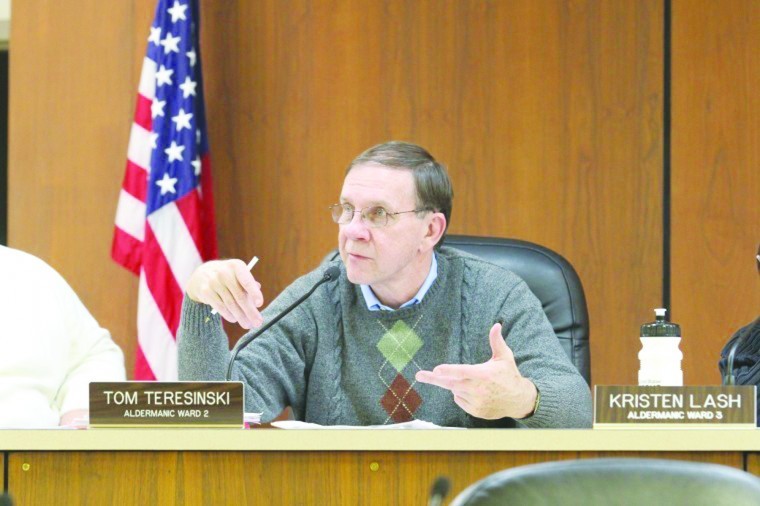DeKalb City Council may hire new lobbying firm
Northern Star File Photo – Second Ward Alderman Tom Teresinski discusses the potential farmland use by the DeKalb Taylor Municipal Airport, 3232 Pleasant St. during a city council meeting last fall.
February 20, 2012
The DeKalb City Council will decide whether to hire a new lobbying firm on Feb. 27.
During a Feb. 13 meeting the council interviewed two lobbying firms to represent DeKalb in Washington D.C.; the council settled on mCapitol Management. For the annual cost of $66,000, the firm will work with government agencies to secure grants and funds for city projects, said Mayor Kris Povlsen.
Fourth Ward Alderman Brendon Gallagher said there is no certainty lobbying firms will bring money from the federal government.
“You are crossing your fingers on a handshake to get money,” he said.
Lobbying firms must find programs offered by government agencies and fit those programs for the needs of the city, Gallagher said. The process is less efficient than having Congress provide funds for specific projects directly, he said.
Gallagher voted against the city needing lobbying firms in a Feb. 13 council meeting. He does not plan to vote for hiring the firm next Monday.
The annual payments for mCapitol Management services would be better spent on improving the DeKalb’s marketing department to attract businesses in trade shows, Gallagher said.
Public Administration Professor Heidi Koenig said the use of lobbying firms is a lot more common with local governments.
“Lobbying firms are more efficient than having individual city staff members focus on speaking with state representatives,” Koenig said.
With the help of a new lobbying firm, DeKalb plans to improve road construction, transportation and the DeKalb Taylor municipal airport, Povlsen said.
Some of mCapitol Management’s success include assisting Clermont County, Ohio in receiving $250,000 in federal funds to improve transportation corridors, according to their proposal submitted to the council.
The contract for DeKalb’s previous lobbying firm, Daley Policy Group, LLC, was not renewed in July 2011.
The council did not find the activities reports of the firm’s president Patty Daley adequate and questioned if DeKalb’s investments were the result of her work. “The majority of the council weren’t sure the expenses for her services justified the results,” Povlsen said.







